The 2024 Annual Conference of the Chinese Confucian Academy was held in Taizhou City, Zhejiang Province. The conference lasted from September 20th to 22nd. The theme of the conference is “Li Yue (Ritual Music) and the World Order”. The annual conference was hosted by the Chinese Confucian Academy and co-organized by the School of Humanities of TU and Taizhou Hehe Culture Research Institute. Over a hundred Confucian scholars and experts from universities and institutions as Tsinghua University, Peking University, Renmin University of China, Fudan University, Nankai University, and Wuhan University, gathered to conduct in-depth discussions on topics such as Confucian humanism, Li Yue (Ritual Music) civilization, and the world order.

Professor Yue Chuanyong, President and Deputy Secretary of the CPC TU Committee, delivered a speech detailing the university’s achievements in Confucian studies and emphasized the university’s active efforts in Hehe culture research, including the establishment of the Taizhou Hehe Culture Research Institute and the formation of interdisciplinary research teams. President Yue expressed that TU will deepen the fusion research of Hehe culture and Confucian thought, promote the modernization of Confucian studies from the perspective of Hehe culture, and strengthen the integration of Hehe culture and public policy research. He emphasized that as an important part of China’s excellent traditional culture, Hehe culture contains rich philosophical wisdom and practical significance.
As a local university, TU has an obligation to explore and research this cultural treasure. He pointed out that the university has achieved a series of results in Hehe culture research in recent years, including publishing multiple monographs on Hehe culture research, hosting multiple high-level academic seminars, and establishing long-term cooperative relationships with multiple universities and research institutions both domestically and internationally. President Yue stated that the university will continue to support Hehe culture research, cultivate more talents in this field, and contribute to the creative transformation and innovative development of China’s excellent traditional culture.
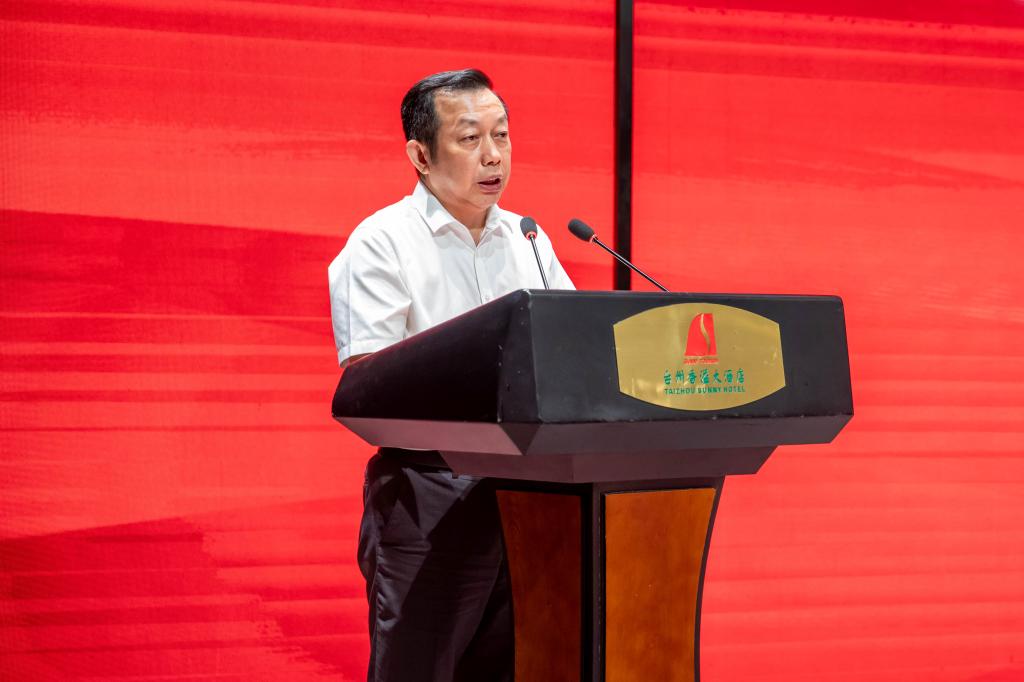
Professor Gan Chunsong, Executive Vice President of Chinese Confucian Academy and Dean of the School of Philosophy at Nankai University, delivered a speech, elaborating on the significant role of Confucian culture in contemporary China. He pointed out that Confucian humanism has been the core content of Confucian culture and thought ever since Confucius’s time. It has not only shaped the spiritual character of the Chinese nation but also enriched the connotations of humanism worldwide. Professor Gan specifically emphasized that the concept of order corresponding to ritual music civilization is world order that integrates the orders of the individual, family, country, and the world across different dimensions.
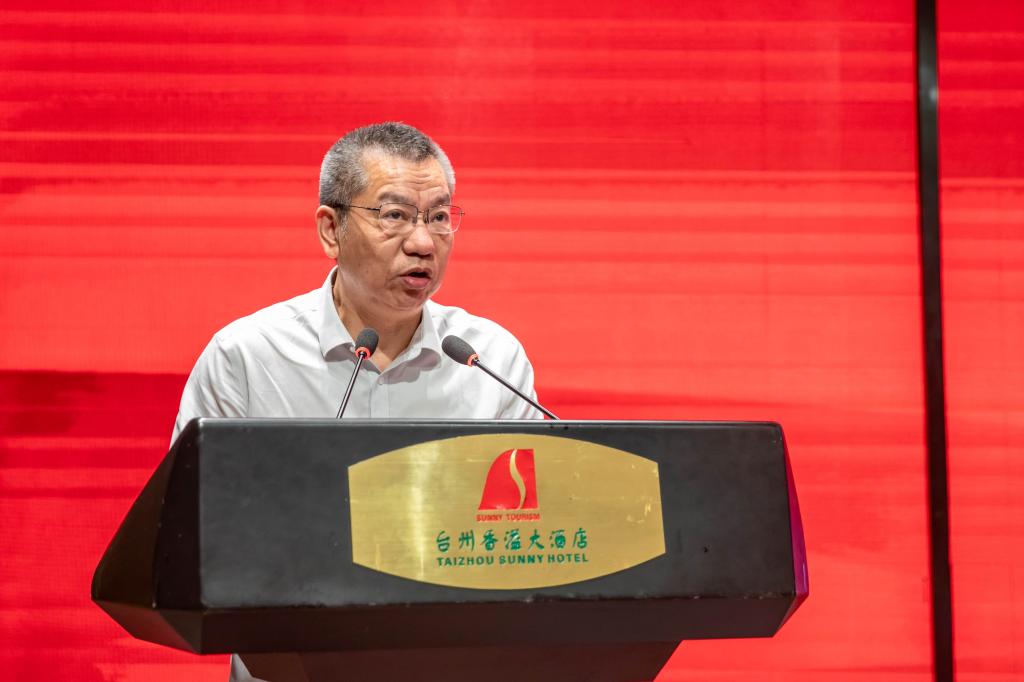
The opening ceremony was hosted by Professor Li Jianjun, Vice President and Member of the CPC TU Committee.
The keynote speech session was hosted by Professor Gan Chunsong. Five scholars delivered keynote speeches. Professor Zhang Xuezhi from Peking University explored the issue of hexagram sequences under Wang Fuzhi’s ontological thinking, deeply analyzing the uniqueness of Wang’s philosophical thought. Professor Ouyang Zhenren from Wuhan University conducted in-depth research on Confucius’ educational thought on human nature and emotions, elucidating the modern significance of Confucius’ educational philosophy. Professor Tang Wenming from Tsinghua University proposed another understanding of Confucian reclusiveness, providing new ideas for Confucian studies. Professor Miao Runtian from Shandong University discussed the universal significance of Confucianism from the perspective of Confucian educational thought, sparking deep thinking among the participants. Professor Chen Ming from Taizhou Hehe Culture Research Institute provided a new interpretation of “the unity of heaven and man” from a Confucian perspective, showcasing the latest achievements in Hehe culture research. These five speeches laid a solid foundation for the subsequent six sub-venue discussions.
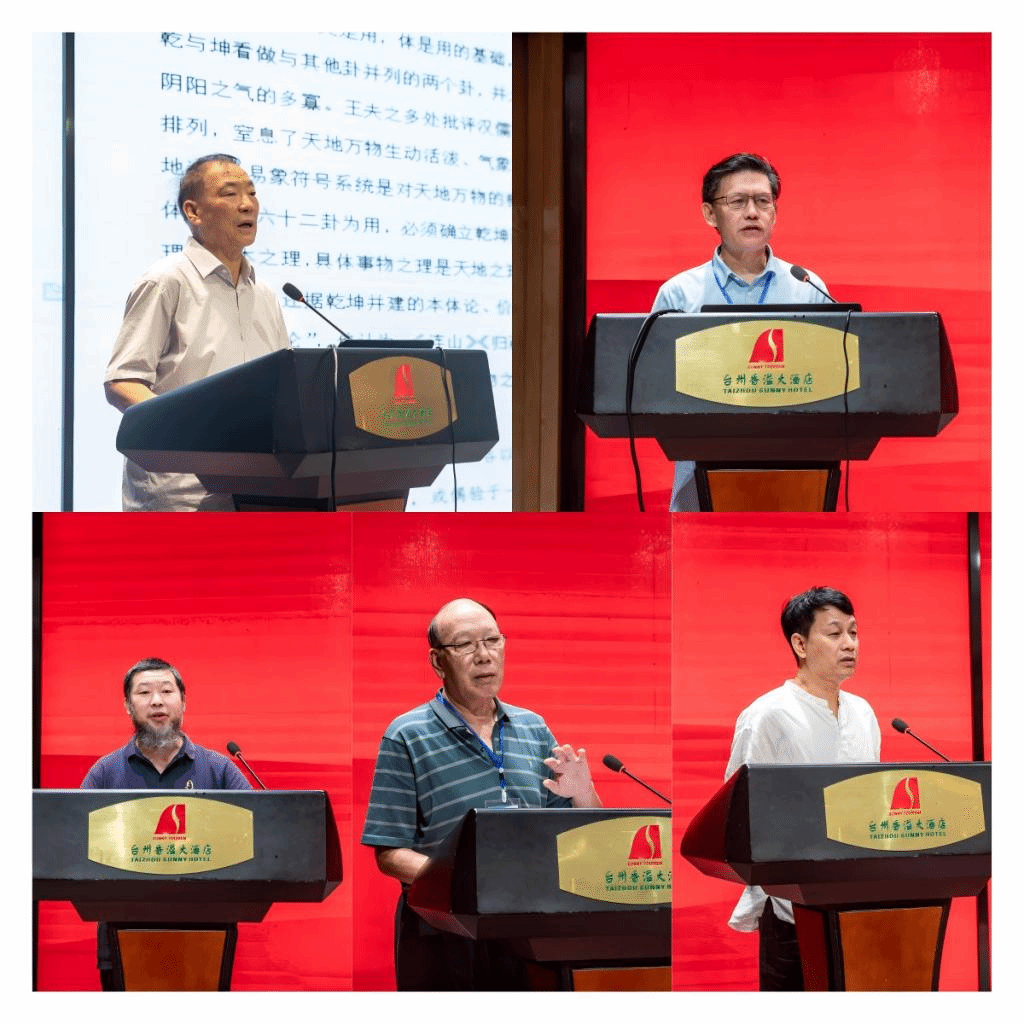
The first sub-venue session was successively chaired by Professor Wang Weiwei from China University of Political Science and Law and Professor Shen Shunfu from Shandong University. Professor Guo Meihua from Shanghai University of Finance and Economics and Professor Sheng Ke from Beihang University worked as reviewers. The session covered topics such as Confucian ethics, ritual music education, moral self-discipline and heteronomy, and thought of publicity, and explored the application of Confucianism in modern society and its comparison with other theories. Scholars reported on the following topics: Professor Shen Shunfu from Shandong University on “Response and Traditional Confucian Theory of Music Education”; Professor Sheng Ke from Beihang University on “‘Estrangement or Sympathy: an Interpretation of Confucian Ethics’ Modern Significance”; Professor Wang Ya from Liaoning University on “Subsumption of Etiquette Norms and Value Tenets: Human Ethics in Daily Life of Confucian Rituals”; Researcher Dai Yun from Henan Academy of Social Sciences on “Achieving Virtue Through Music and the Loss of Confucian Music Education”; Dr. Yuan Yongfei from Zunyi Medical University on “A Multidimensional Examination of Chinese Humanistic Ideals under the Spiritual Perspective of Confucianism”; Professor Wang Weiwei from China University of Political Science and Law on “Self-discipline and Heteronomy of Morality Viewed from the Perspective of Shame and Honor: A Comparison Between Confucianism and Legalism in the Pre-Qin Period”; Professor Guo Meihua from Shanghai University of Finance and Economics on “Two Approaches to Universalism and Their Consequences: A Comparison between Zhuangzi and Mencius”; Professor Zhu Cheng from East China Normal University on “The Confucian Dimension of Publicness Thought”; Associate Researcher Chen Peihui from Shandong University on “An Examination of Ye Shi’s View of Kingcraft and Hegemony in the Context of the Interaction between Confucian Classics and Philosophies”; Professor Jin Shengyang from China West Normal University on “Zhang Shi’s Exposition of Lianxi Studies”.
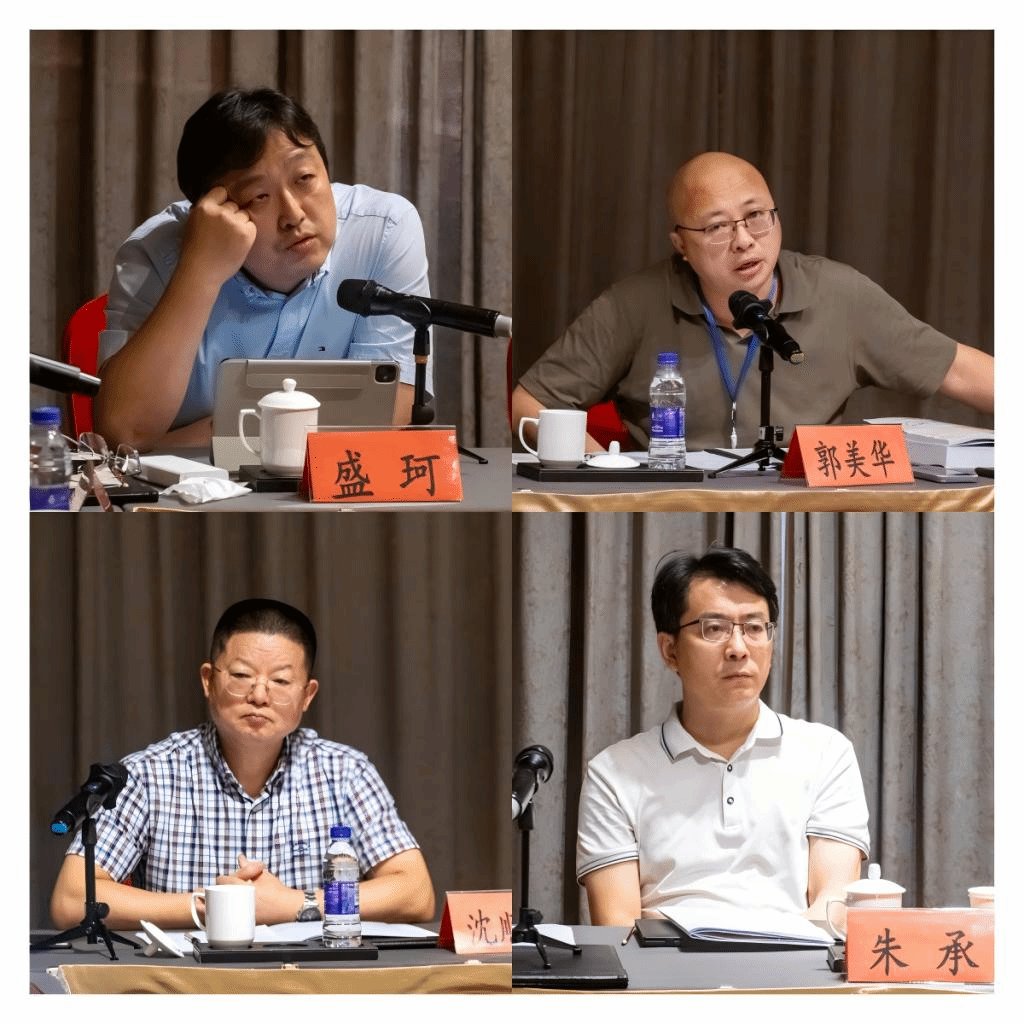
The second sub-venue session was successively chaired by Professor Zhu Fengjuan from Shaoxing University and Professor Wei Yanhong from Hengshui University. Professor Wang Kai from Beijing Normal University and Professor Wang Xinchun from Shandong University worked as reviewers. The session focused on Dong Zhongshu’s thoughts, the change of Confucian classics, ritual music civilization, Confucian ethics and poetic tradition, and explored the development and changes of Confucianism in different historical periods. Scholars reported on the following topics: Professor Wei Yanhong from Hengshui University on “Ecological Wisdom and Its Enlightenment in Dong Zhongshu’s Thought of Benevolent Governance”; Dr. Liu Yutong from the Chinese Academy of Social Sciences on “Liu Xin’s Cosmology and the Reform of Classics”; Researcher Ren Milin from the Chinese Academy of Social Sciences on “New Research on Li Wei and Yue Wei”; Professor Wang Xinchun from Shandong University on “Heaven and Man Concern in Xun Shuang’s Yi-ology Rising and Descending Theory under the Context of Li and Yue Culture of Classics”; Professor Chen Bisheng from Tsinghua University on “The Formation of the ‘Li and Yue’ Nature of Chinese Civilization: Making Li and Yue in the Post-Zheng Xuan Era”; Professor Wang Kai from Beijing Normal University on “Life, Value, and Self: The Value Foundation of Confucian Parent-Child Ethics and Modern Situation”; Dr. Song Jiajun from TU on “The Transformation of Scholarly Attitude in the Southern Dynasties Viewed from Yan Zhitui’s Criticism of Yan Yanzhi”; Professor Zhu Fengjuan from Shaoxing University on “Confucianism in Han Shan’s Poems”; Associate Professor Lu Bo from Guizhou Normal University on “How Did ‘Mo-shi’ Become a Theory of Gong-fu? Based on Historical and Philosophical Research”; and Editor-in-Chief from Shanghai Ancient Books Publishing House on “Mr. Shu Jingnan’s Academic Research”.

The third sub-venue session was successively chaired by Professor Zhang Peigao from Sichuan University and Associate Researcher Yang Li from Tianjin Academy of Social Sciences. Professor Wang Qi from Changsha University of Science and Technology and Professor Zeng Haijun from Sichuan University worked as reviewers. The session involved topics such as Confucianism and cultural education, ritual music civilization, Confucian philosophy of life, and political thought, and explored the application of Confucianism in politics, education, and cultural identity. Scholars reported on the following topics: Professor Zeng Haijun from Sichuan University on “One Man and the World: The Interpretation of Chao Cuo’s Thoughts”; Professor Song Lilin from Qufu Normal University on “What Makes New Ritual Music Possible?”; Associate Researcher Yang Li from Tianjin Academy of Social Sciences on “Research on the Sacredness of the Confucian Temple”; Associate Professor Dong Weiguo from Southwest University of Political Science and Law on “Confucianism as ‘Cultural Education’ and the Chinese National Community Consciousness”; Professor Zhang Peigao from Sichuan University on “Life Philosophy of Confucianism”; Professor Wang Qi from Changsha University of Science and Technology on “Exploring Confucius’ Thought ‘Politics Is Righteousness’”; Associate Professor Wang Shunran from Shenzhen University on “Enlightenment from General Knowledge: Confucius’ Yue Theory in the Analects of Confucius from the Perspective of the Scale of Yue Education in the Pre-Qin Period”; Doctoral Candidate Gao Yujie from Liaoning University on “Governing People and Teaching People: ‘People Can Be Made to Follow but not to Know’ Revisited”.
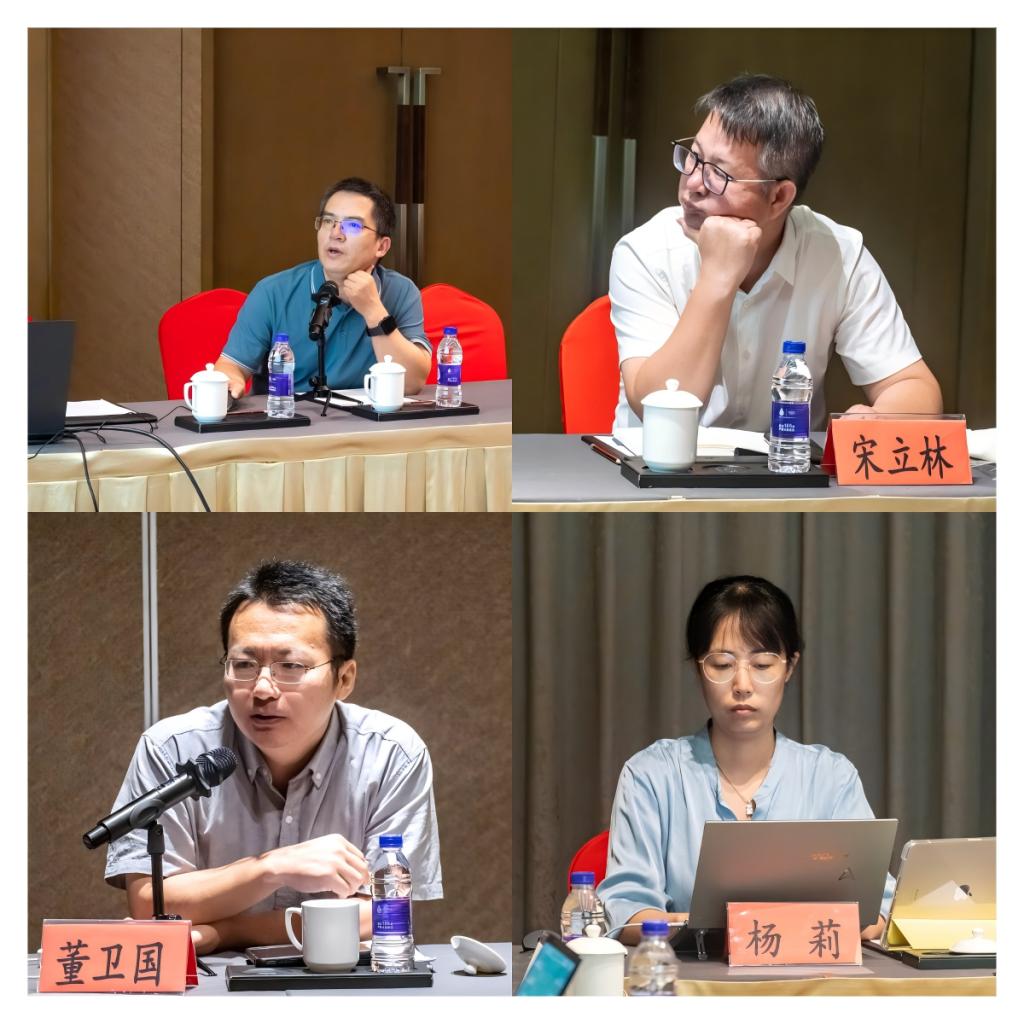
The fourth sub-venue session was successively chaired by Associate Professor Li Kai from Southwest University and Professor Li Xiaoying from Zhoukou Normal University. Professor Feng Bing from Xiamen University and Professor Tan Mingran from Nankai University worked as reviewers. The session centered on the relationship between Confucianism and Taoism, the thought of Zhuangzi, the concept of benevolence in Confucianism, and the thought of Mencius. It explored the similarities and differences between Confucianism and other schools, as well as the development and evolution of core concepts in Confucianism. Scholars reported on the following topics: Professor Tan Mingran from Nankai University on “Confucianism and Taoism: Same Origin, Different Orientation”; Professor Li Xiaoying from Zhoukou Normal University on “‘Motherland’ and ‘Governing a Great Nation as Living at Lower Reaches of a River’: Comparing Confucius’ and Laozi’s ‘State’, ‘Nation’, and ‘World’”; Dr. Zhang Fangfang from Shandong University on “Does Zhuangzi Completely Negate ‘Benevolence and Righteousness’?” Associate Professor Dai Senyu from Sichuan University on “Revisiting the ‘Education of Humanity’ from the Perspective of Mind Theory”; Professor Zhang Chengzhong from TU on “‘Approaching Yang but Distancing Mo’ and Theory of Nature of Life”; Associate Professor Meng Qingnan from Peking University on “Early Confucian Concept of Benevolence in the Ethical Structure”; Associate Professor Li Kai from Southwest University on “Mencius’ Compassion and Levinas’ Sensibility”; Researcher Peng Yanhua from Nishan World Center for Confucian Studies on “Tracing the Origin of Mencius’s Taoism”; Professor Feng Bing from Xiamen University on “Natural Human Nature, Acquired Virtue and Vice: Xunzi as an Upholder of ‘Natural Human Nature Theory’”; Dr. Pan Run from TU on “The Omitted and Unwritten: the Monarch-Minister Interchanging Political Landscape in the Early Warring States Period”.
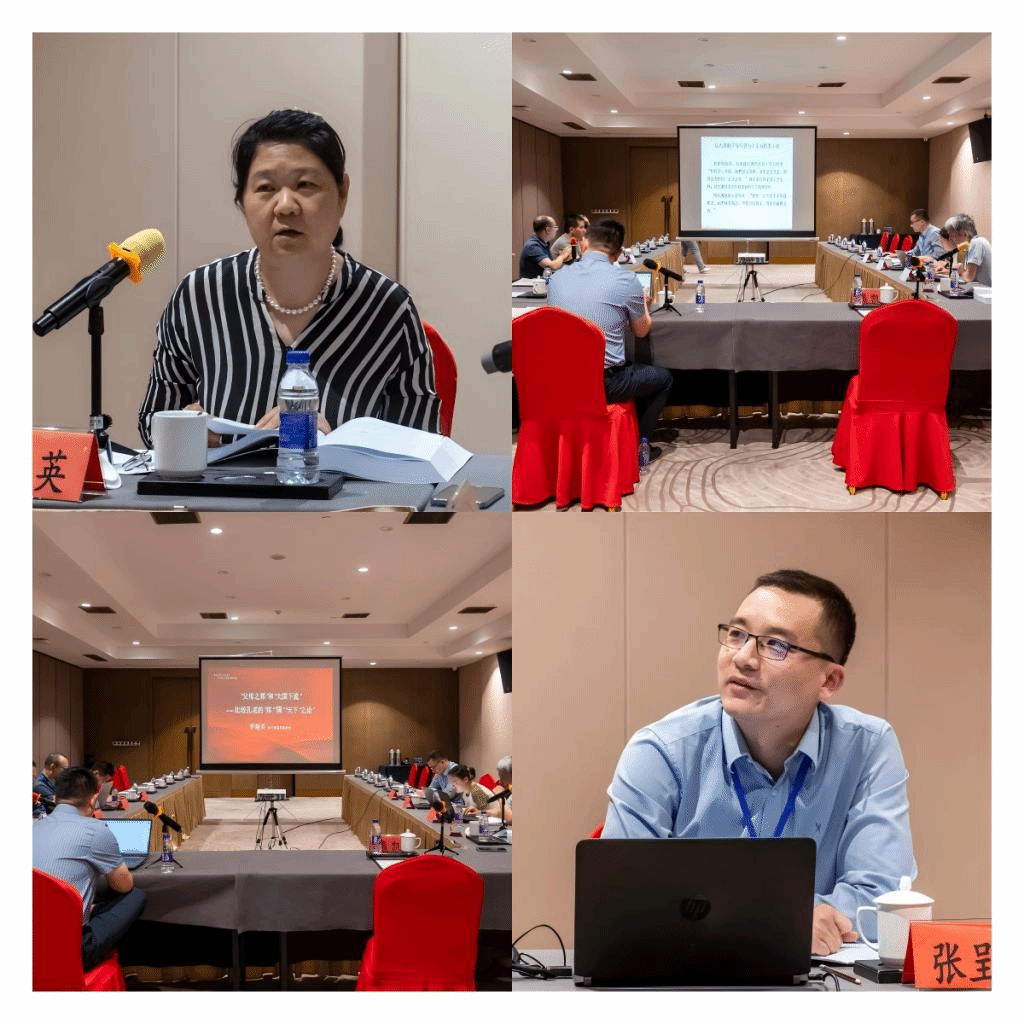
The fifth sub-venue session was successively chaired by Associate Professor Qu Yanfei from TU and Associate Professor Yun Long from Jilin University. Associate Researcher Chen Ming from the Chinese Academy of Social Sciences and Professor Li Jianjun from TU worked as reviewers. The session focused on the themes of Si Kongtu’s poetics, Wang Yangming’s mind theory, and Wang Chuanshan’s interpretation of the Four Books, exploring the development of Neo-Confucianism in the Song and Ming dynasties and its influence on poetics and Li (etiquette). Scholars reported on the following topics: Professor Li Jianjun from TU on “Confucianism as a Way of Life and Style as a Way of Displaying Uniqueness: Si Kongtu’s Confucian Qualities and Noble Character Poetics”; Associate Professor Yun Long from Jilin University on “Wu (Matter) in Primitive Sense: A Necessary Perspective for Understanding the Relationship between Mind and Matter in Wang Yangming’s Thought”; Associate Researcher Yang Hao from Peking University on “Wang Longxi’s Studies on Four Books and Its Characteristics”; Professor Qian Cheng from Taizhou University on “A Study on the Poetry of ‘Three Sages of Wang’ in the Late Ming Dynasty”; Professor Yin Hui from Hunan University on “Mind, Emotion, and Conscience: Wang Yangming’s Theory on the Origin of Ritual Music”; Associate Professor Qu Yanfei from TU on “The Shift from Cognitive Subject to Value Subject: The Generation and Progression of Zhu Xi’s and Wang Yangming’s Theory of Investigating the Nature of Things”; Dr. Zhan Liangshui from Wenzhou University on “On Wang Yangming’s Interpretation of ‘All in One’ in ‘Questions about the Great Learning’”; Associate Researcher Chen Ming from the Chinese Academy of Social Sciences on “The Li (Rituals) in Wang Chuanshan’s Interpretation of Four Books”; Professor Zhang Shuye from Henan Normal University on “Complementarity and Interdependence Between Politics and Education: A Study of Wang Chuanshan’s Wang Zhi (Royal Regulations)”.
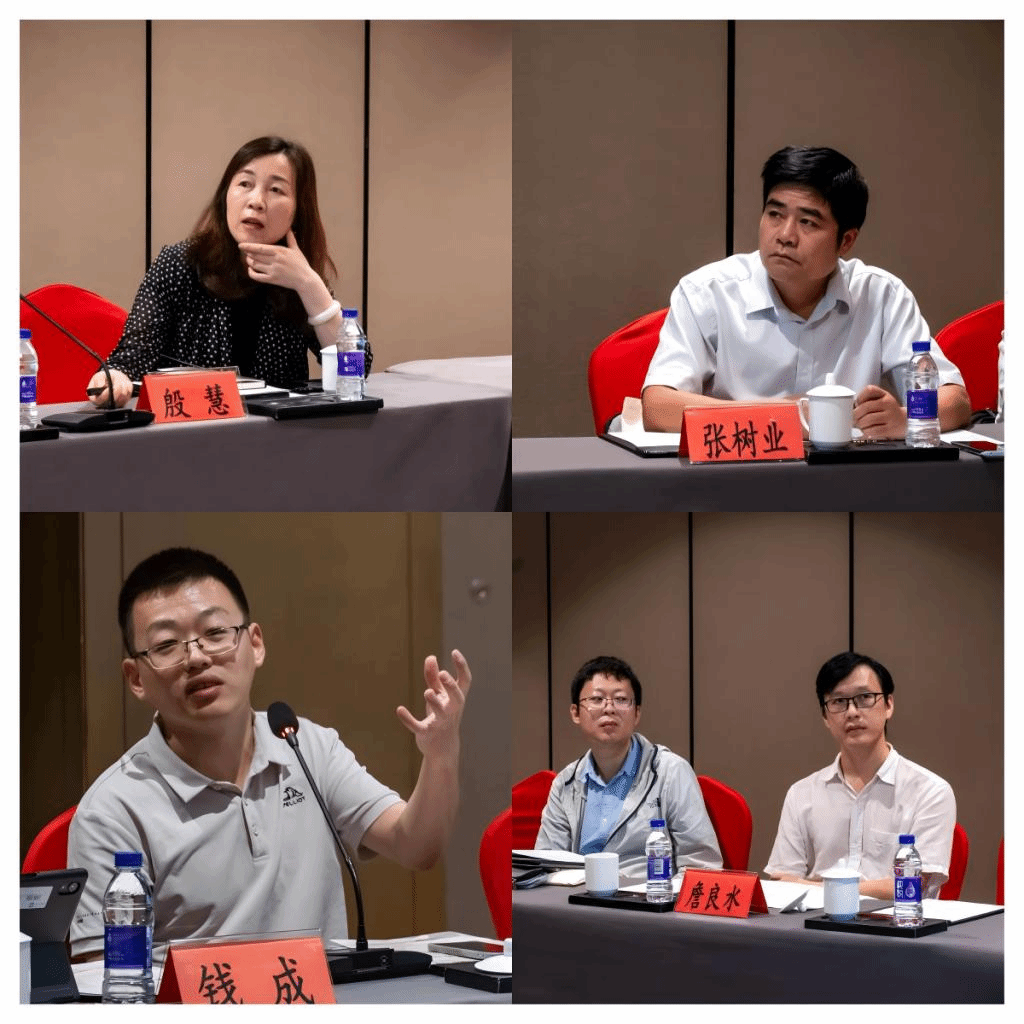
The sixth sub-venue session was successively chaired by Professor Fan Zhihui from Shanghai Normal University and Professor Wang Xuqin from Zhejiang Gongshang University. Professor Zeng Yi from Tongji University and Professor Guo Xiaodong from Fudan University worked as reviewers. The session mainly involved the topics of Zhu Xi’s Neo-Confucianism, Xunzi Studies in the Qing Dynasty, modern ritual music, and Xiong Shili’s thoughts, and explored the evolution of Confucianism in different periods and its modern interpretation. Scholars reported on the following topics: Professor Wang Xuqin from Zhejiang Gongshang University on “The Ontological Interpretation of Zhu Xi’s ‘Li Yi Fen Shu’ and Its Development”; Dr. Yuan Su from Huaqiao University on “Zhu Xi’s Philosophy of the World and Its Contemporary Value”; Professor Liu Wei from Zhejiang Gongshang University and Dr. Liu Ziyun from Qufu Normal University on “The Neo-Confucian Interpretation of ‘Tao’ in the ‘Annotation on the Analects’ and Zhu Xi’s View of the Confucian Tradition”; Associate Professor Deng Guohong from Guizhou University on “Centering on Li (rituals): Qing-dynasty Scholar Jiang Tong’s Studies of Xunzi”; Professor Guo Xiaodong from Fudan University on “Oral Speeches, Sublime Words, and Reformation: Kang Youwei’s Interpretation of Dong Zhongshu’s Thought”; Professor Fan Zhihui from Shanghai Normal University on “The Fate and Making of Modern Ritual Music”; Professor Zeng Yi from Tongji University on “Xiong Shili’s Reinterpretation of the Gongyang Zhuan and His Later Political Thought”; Professor Han Likun from Nanjing Forestry University on “The Core Concept of Liang Shuming’s Cultural Ontology: Life, Fate, Emotion, and Reason”; Dr. Xiang Haoqiu from TU on “An Analysis of the Causes of the Revival of Yangming School in the Late Qing Dynasty and the Republic of China”.
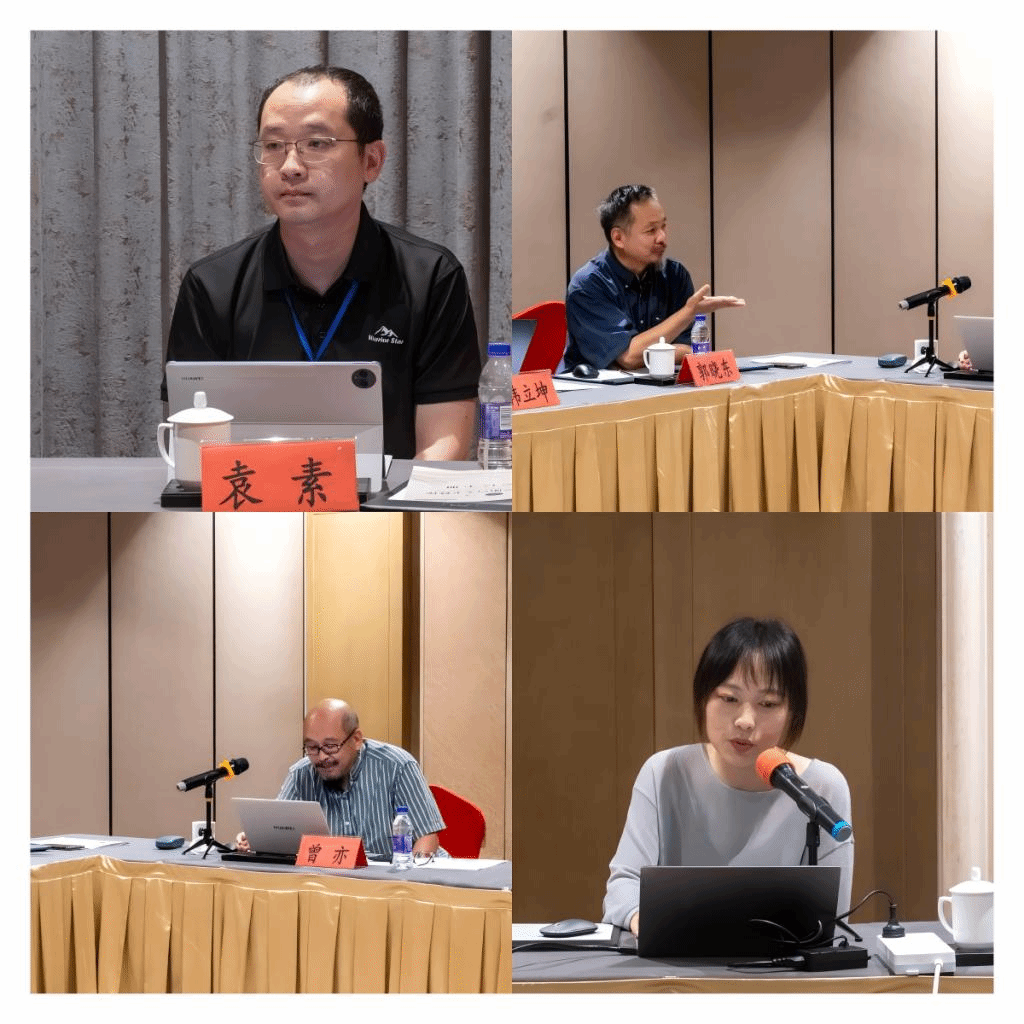
The closing ceremony consisted of two parts. The first was keynote speech, which was hosted by Wu Anchun, Vice President of Chinese Confucian Academy and a researcher at the Institute of Educational Theory of the China National Academy of Educational Sciences. Professor Li Chenggui from Nanjing University, Professor Han Xing from Renmin University of China, and Professor Wang Guoliang from Anhui University respectively made reports on the humanistic dimension of Confucianism, the humanistic spirit and ethical order of the ritual music civilization, and the promotion of Confucian cultural spirit.

The subsequent summary session of the conference was hosted by Ren Milin, Deputy Secretary General of Chinese Confucian Academy and a researcher at the Institute of Philosophy of the Chinese Academy of Social Sciences. The summary reports of each venue were presented by Professor Zhu Cheng from East China Normal University, Professor Chen Bisheng from Tsinghua University, Professor Song Lilin from Qufu Normal University, Associate Professor Meng Qingnan from Peking University, Professor Yin Hui from Hunan University, and Professor Han Likun from Nanjing Forestry University. They summarized the research results and discussion foci of each sub-venue in terms of Confucian ethics and educating and influencing functions of ritual music, Dong Zhongshu’s thought and the change of Confucian classics, Confucianism and cultural education, Confucianism-Taoism relationship and the thought in Zhuangzi, Neo-Confucianism in the Song and Ming dynasties, and Zhu Xi’s Neo-Confucianism and modern ritual music.
Tang Wenming, Secretary General of Chinese Confucian Academy and Professor of Philosophy at Tsinghua University, made a summary report on the whole conference. He pointed out that the discussions at this annual meeting not only had in-depth explanations of Confucian classics, but also had positive responses to practical issues. Professor Tang emphasized that future Confucian studies need to pay more attention to the intersection and integration with other disciplines and actively respond to the concerns of the current society.
The successful holding of this academic event at TU demonstrates the efforts of the university in promoting Confucianism research and cultural exchanges, as well as its efforts in inheriting and developing the best of traditional Chinese culture. It is worth mentioning that Chinese Confucian Academy is a national academic group under the Ministry of Education of the People’s Republic of China and registered with the Ministry of Civil Affairs. It is one of the most authoritative and influential academic organizations in the field of Confucian studies in China. The academy was founded by Zhang Dainian, a famous philosopher. The current president is Professor Wang Zhongjiang, a distinguished professor with the title of the Ministry of Education’s Yangtze River Scholar and a professor of philosophy at Peking University. The academy has played an important role in promoting Confucian studies and international academic exchanges. It has held many influential international academic conferences and maintained close cooperation with many scholars and institutions at home and abroad, making great contributions to the international communication of Chinese culture.